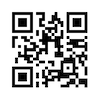Digital Creatives and the Rethinking of Religious Authority - Chapter 3
Dr. Campbell, director of the Network, explores the interactions between digital innovators and religious organization and institutions, in her latest book: Digital Creatives and the Rethinking of Religious Authority (Routledge 2020). Here we provide a glimpse into her insights shared in the book on how digital creatives with religious motivations and digital media experts working the churches are challenging traditional notions of what it means to have religious authority in a digital age. The following blog post is an edited excerpt from a chapter appearing in Digital Creatives and the Rethinking of Religious Authority give our readers a unique insights into her arguments and findings shared in the book.
Chapter 3: Christian Digital Creatives' Performance of Authority
Scholars have suggested Goffman’s works tended to overlook discussions of authority, but I beg to differ. Rogers (1980BIB-roger) was one of the first scholars to recognize Goffman as offering interesting insights into the question of how authority is enacted in society. She suggested Goffman had not been regarded as a power theorist, not because of his lack of attention to power, but because he saw power in a different way. She argued that, for him, power, hierarchy and social structures are intertwined, so that he was not as vocal as other scholars in highlighting the importance of power as the central trait manifestation of authority. This means references to authority in his work were often implicit, inferred from his discussion of how the stage of life is framed by visible and invisible forces and structures of the social order.
Rogers went on to stress that Goffman talked about power in terms of social influence and control rather than as a value or a belief; for him, “Power is see-able (p. 396).” This means authority is to be approached as something to be observed. Actors can be seen as influenced by the conditions of the culture in which they are situated. These cultures have embedded views and frameworks of authority that further condition the extent to which people are able to act in solitary, self- determined ways or are subject to the conditions of being interconnected to others or structures. She suggested using Goffman’s dramaturgical approach for studying how individuals are subject to and shaped by various manifestations of authority requires paying attention to two aspects of their performance in tandem—their actions and language. By viewing an actor’s front- and back-stage performances, paying attention to what they do and say, a full picture of authority emerges—of how it is understood by the actor and so performed. I argue that such a reading of Goffman offers us the basis for a concrete method to apply this approach to authority to the study of RDCs.
RDCs’ media-making stories reveal a distinct understanding of authority that correlates with how they situate themselves and their work within digital culture. These perceptions of authority, drawn from their engagement with and perceptions of the digital environment, speak to the notion of algorithmic authority, as discussed in Chapter 1. Algorithmic authority recognizes one’s prominence and potential ability to influence others as grounded in technological expertise. Leveraging their skills and influence created via social networks and resources enables RDCs to pos- ition themselves as actors able to influence their audiences’ opinions and actions. The researcher must pay attention to the ways RDCs talk about digital technolo- gies and spaces, the value they place on these, how they situate themselves within them and the perceived social outcomes or impact of their work. This research shows that a description of their digital work enables us to link them to the strat- egies and practices of one of the three types of digital actors within algorithmic culture as described in Chapter 1. Mirroring the work strategies of a media influ- encer, thought leader or digital leader helps us talk about the way RDCs perform algorithmic authority in digital culture relative to their work. These connections can be made by paying attention to what they see their as their position, to their technology mastery and to the prominence of their work online. Together these components guide a distinct performance of authority online and the extent to which they also connect this to their offline expertise. I argue RDCs’ media- making stories provide the researcher with tangible examples and connections to show how the digital work produced manifests understanding of both algorithmic and traditional authority at work in their identities.
Studying RDCs’ media-making stories seeks to capture how RDCs present their work as an identity performance. Initially, it is a story of RDCs living out a distinctive public persona, that of digital expert and servant-leader within a specific religious community. Yet upon closer examination, we see the work narrative also reveals the fact that their performed identity is filtered through two different understandings of authority—one grounded in their understanding of their work’s relationship to a religious community or organization, and another grounded in their comprehension of how digital-media work grants them a form of influence. Mapping this dual performance of authority enables us to see media-making stories as clear, and often fraught, negotiations between traditional and new online and offline grounded views of authority. As RDCs negotiate between these different perceptions with their work, they are typically led to offer a justification narrative, framing these negotiations and the tensions within their work performance. This leads to the discussion of RDCs’ technological apologetic, what it is, and how it can be studied.
Excerpt taken from Campbell, H.A. (2020). Digital Creatives and the Rethinking of Religious Authority. Routledge. This book can be purchased through the publisher at: https://www.routledge.com/Digital-Creatives-and-the-Rethinking-of-Religi...





